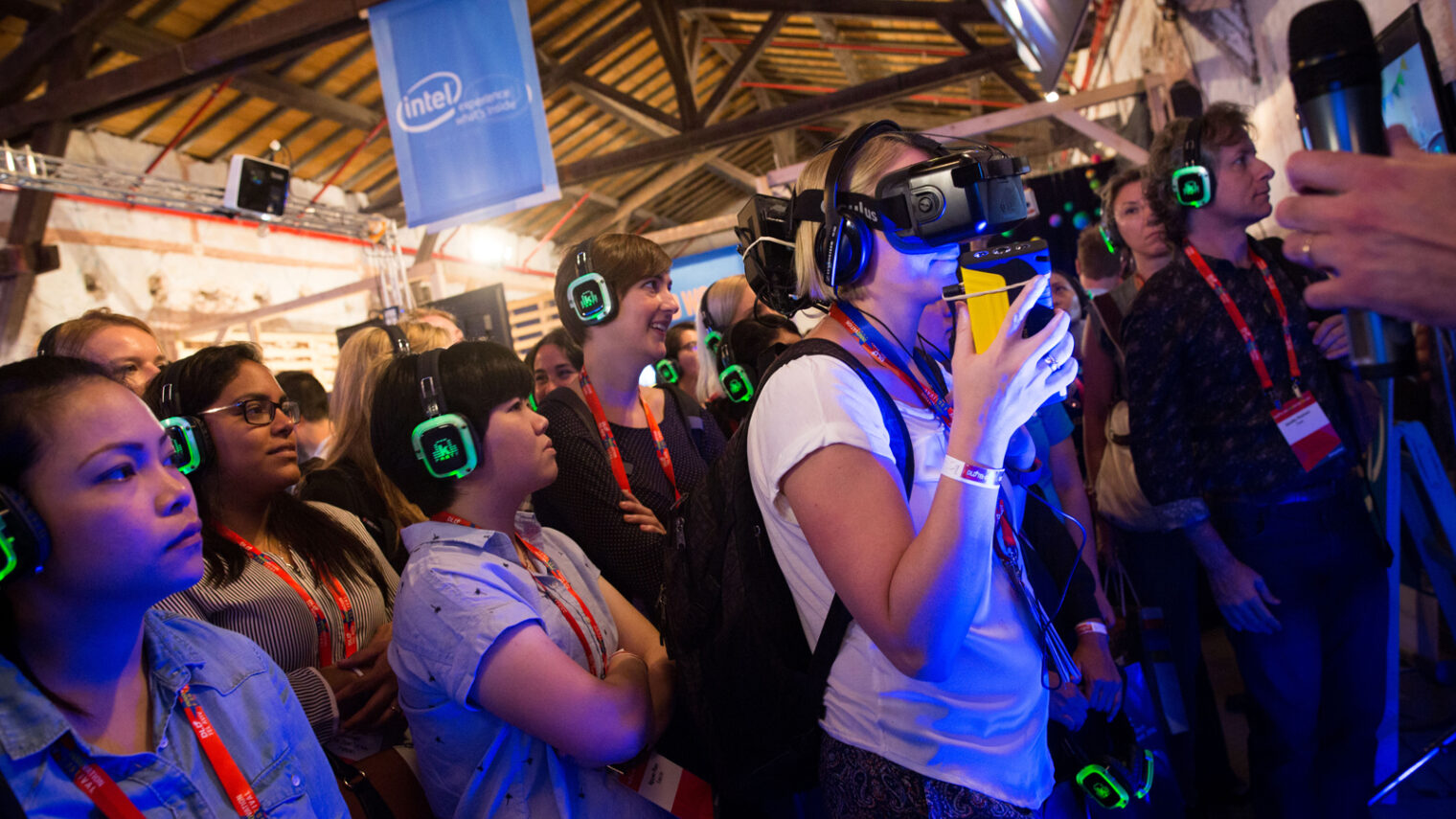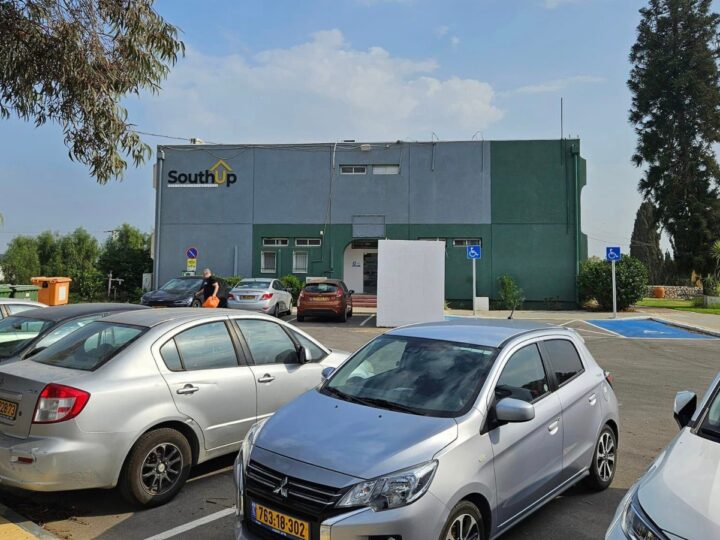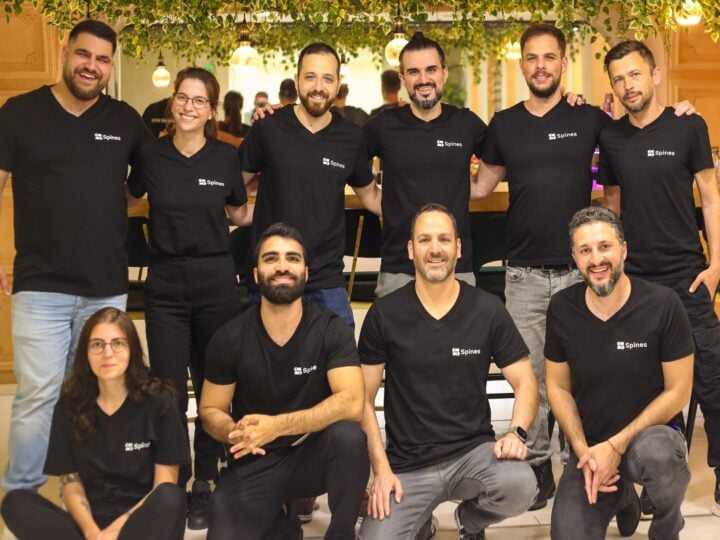The names Vision Dojo, Co-Play, Tipit.tv and HopIt probably don’t sound familiar. But if their developers can work their magic and move these emerging startups forward, these Israeli newbies – along with dozens of others – will become household names.
The bubbling Israeli startup scene is renowned worldwide. There are tech gatherings, conferences and meetups all the time.
But when the annual DLD (Digital Life Design) Tel Aviv Innovation Festival rolls into town, it’s always a guarantee that the country’s up-to-the-minute innovation, creativity and ingenuity will take center stage.
“The mental approach to problems here is very unique. Everywhere in the world, people may be working on something in one way and the Israelis are working the other way around. Israelis can find a better solution that’s more effective and can be made for a cheaper price,” Mattia Crespi, technology evangelist and research affiliate at Institute for the Future in Palo Alto, tells ISRAEL21c at this year’s DLD event, September 24-29.
Crespi, who comes to Israel once or twice a year to seek out new security technologies, says he has never left empty-handed.
“There’s always something happening. A lot of technologies worldwide spin off from Israeli technologies. What you have here is a lot of creativity. I look for the brand-new ideas even if they’re not structured or developed,” he says. “Israel is a good place for things to start.”
And though only four of every 100 startups succeed, Israelis are renowned for turning their ideas into reality despite the odds.
“If you want to start something from nothing, Israel is the place to be,” Yossi Vardi, co-chairman of DLD, told the press. Vardi is considered one of the godfathers of Israeli entrepreneurship.
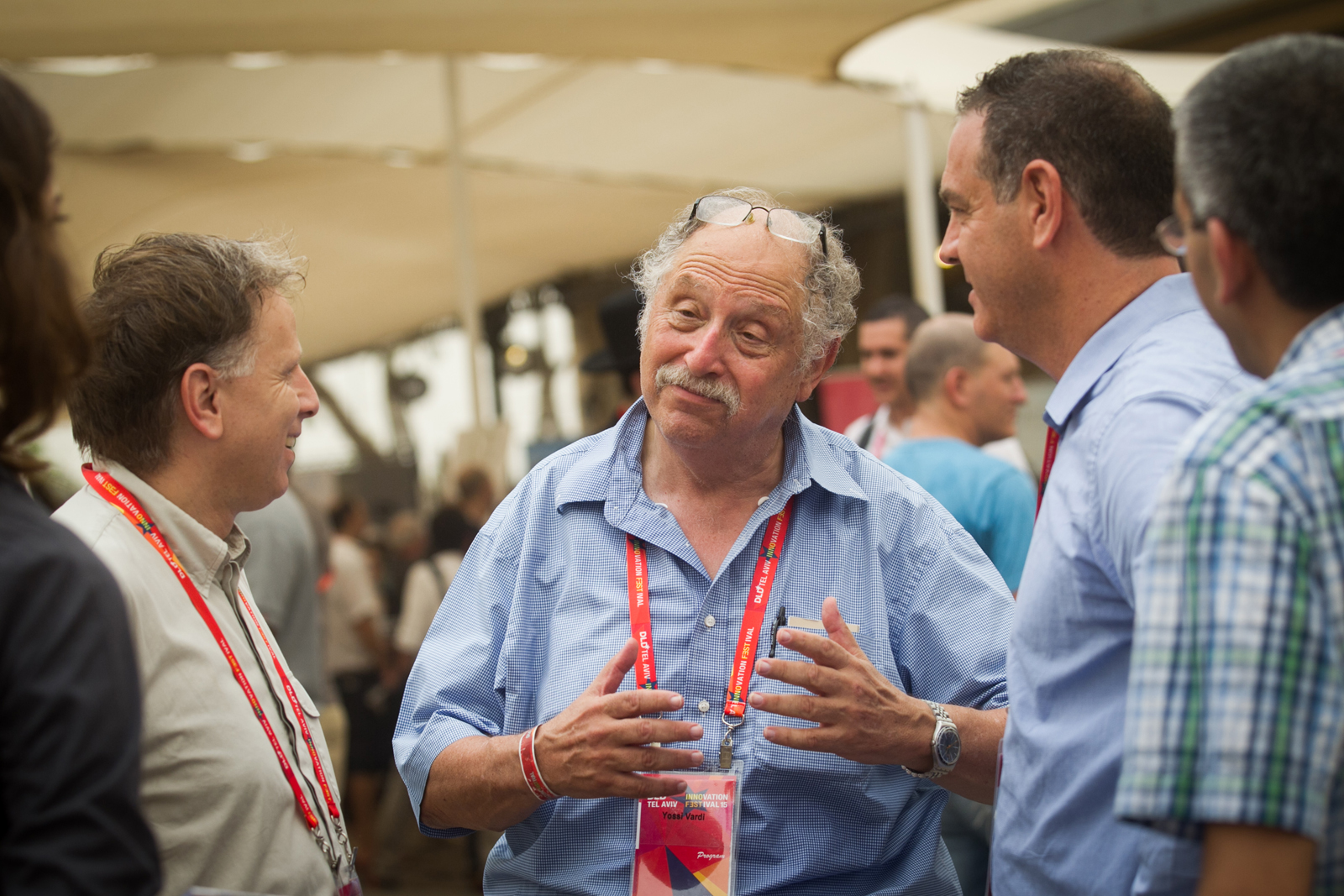
HopIt, Tipit, Vicomi
Ran Meged, founder and CEO of Know-Now, believes his groundbreaking information system, HopIt, is a must-have for everyone seeking answers online.
The fighter pilot-turned-tech-entrepreneur’s company has created a proprietary machine-learning algorithm that doesn’t search for the information in your query but rather for people likely to have that information. If you need the phone number of a restaurant owner, a HopIt search will put you in touch with someone connected to the owner.
HopIt is currently in beta form in Israel and will go live to the world at the end of October.
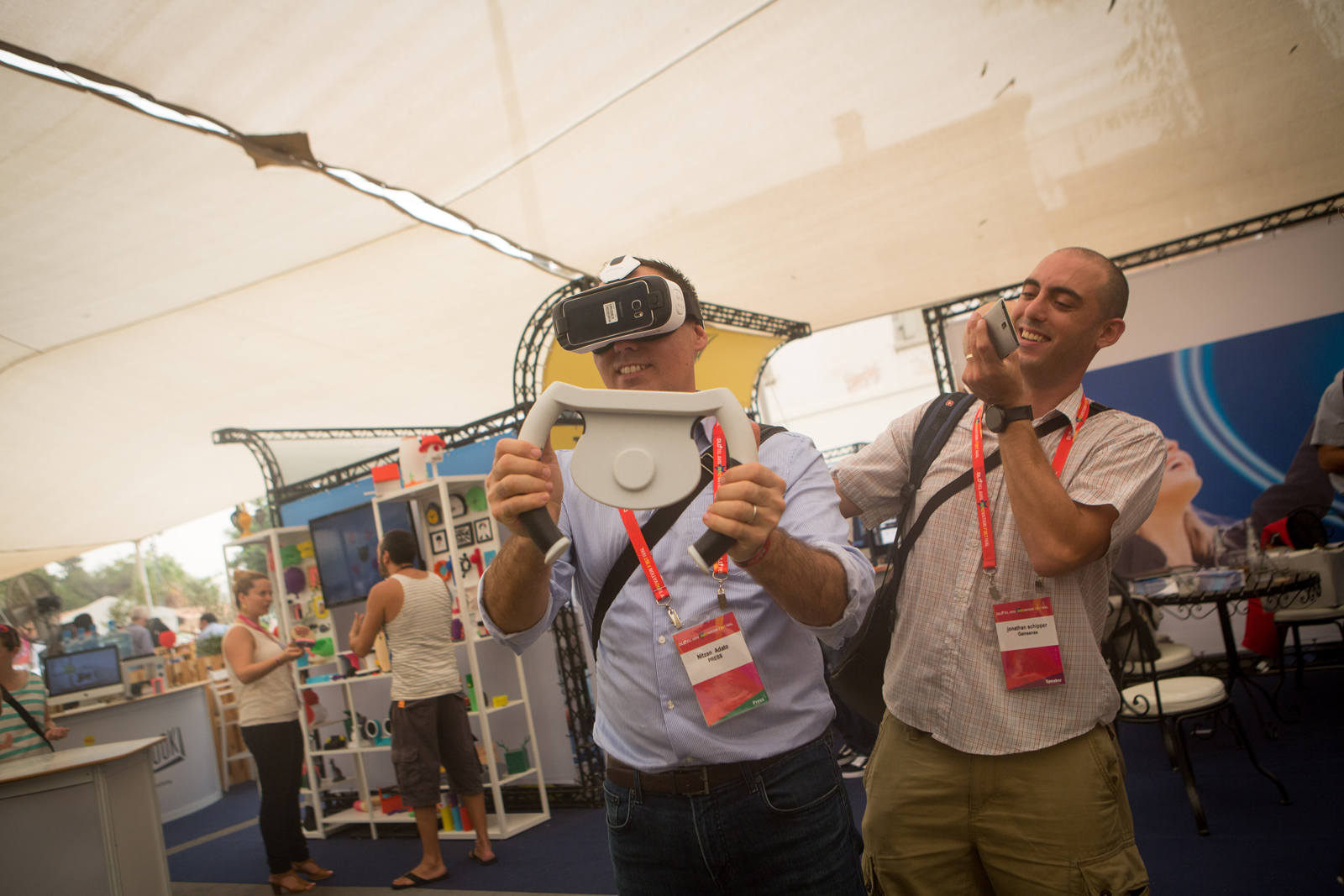
Yehonatan Rimon, CEO of Tipit.tv, has seen his Solo App downloaded over 1.5 million times since its release in the App Store in April. Solo’s first-of-its-kind selfie video and photo technology is sure to be a magnet for copycats.
The Ra’anana-made artificial neural networks technology lets users take a video and superimpose themselves on any background, sans green screen. “We know which pixel belongs where,” Rimon explains as to how his company gets around the green screen requirement.
Want to see yourself in front of the Taj Mahal or dancing beside your favorite rock star? Tipit.tv can make it happen.
And while individual users are nice, Rimon says the next step is to partner strategically with the world’s biggest brands.
“We have no competitors right now,” Rimon tells ISRAEL21c. “Obviously we will.”
Vicomi‘s emotional analytics platform is also one-of-a-kind.
Eli Ken-Dror, CEO and cofounder of Vicomi, wants to see his product at the end of every article you read online.
If a story makes you feel happy, you click on Vicomi’s “happy” widget, and the algorithm finds other “happy” content for you on the same site, effectively increasing user engagement.
Since launching in 2013, Vicomi has 70 million unique users and over 25,000 content publishers.
An exciting shower
Asaf Shaltiel may be the only person you’ll ever meet who can get you excited about taking a shower. He is CEO of SmarTap, the world’s first connected shower, designed and created in Haifa.
SmarTap’s patented shower system lets you control water temperature, pressure and amount of steam, reducing energy and water usage.
A two-year pilot program at the Sheraton in Tel Aviv was so successful that the hotel installed SmarTap on two floors of suites. Hotels in London, France and Brussels will test the system next.
Marketing and funding platform Cercle is bringing a unique variety of crowdfunding to the fashion-tech space.
Cofounder and CEO Uri Keinan and his wife, Tel Aviv fashion designer Ayala Meromi Keinan, created a platform that enables designers to fund their collections while giving customers a discount on future purchases.
They launched only in July 2016, but are already spreading out to New York this winter.
WorkGroup and Co-Play are targeting the group decision-making market. Both Israeli startups say tools like Facebook and WhatsApp are difficult to use for social and business interaction because the conversations continue forward without an option to scroll back to a specific topic.
Co-Play CEO Hagai Folkman tells ISRAEL21c that his company’s scientific-based system to manage meetings and decision-making is a “new channel for communication.”
WorkGroup’s founder and CEO Ami Ben David says his company’s task-management app (desktop and mobile) meshes the likes of Trello and WhatsApp together. WorkGroup’s app has been on the market for nearly four months and already counts over 10,000 groups – with growing communities in Spain and Brazil.
Vision Dojo, a tech-meets-art-installation outfit, did the impossible in getting tech fans to dance outdoors in a public space. This little company came into being in February as a unique project for the Israeli Burning Man Festival. The idea is simple: a deejay spins beats while people dance in front of a sensor and create a real-time colorful art mural with their movements. The art is projected onto a white screen.
In August and September, this Israeli team travelled to Borderland (Denmark), Burning Man Netherlands and Burning Man Nevada.




